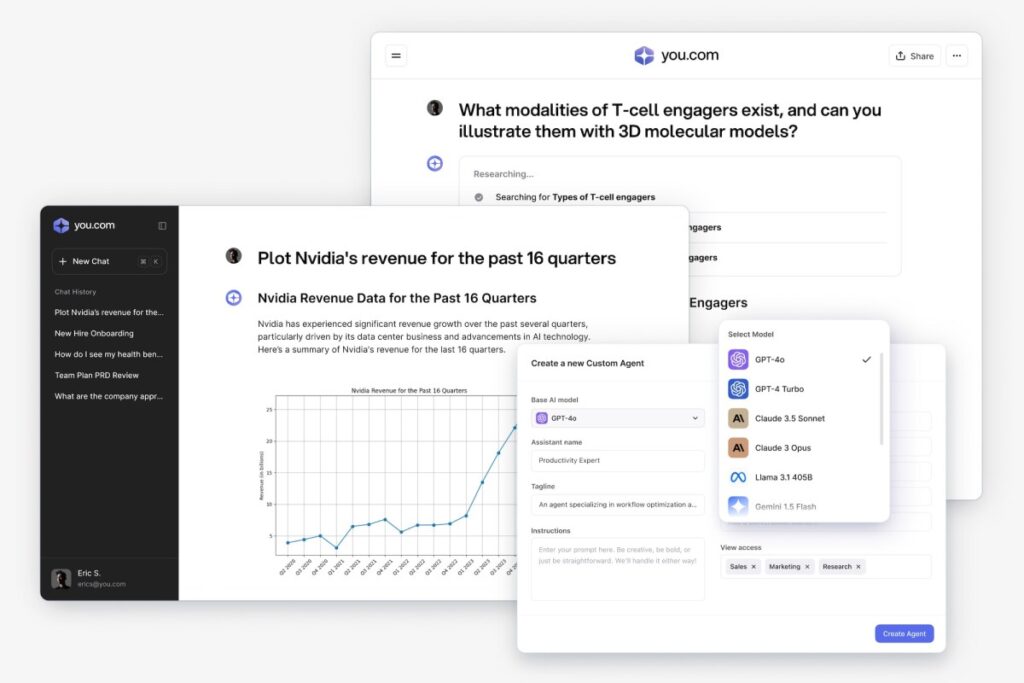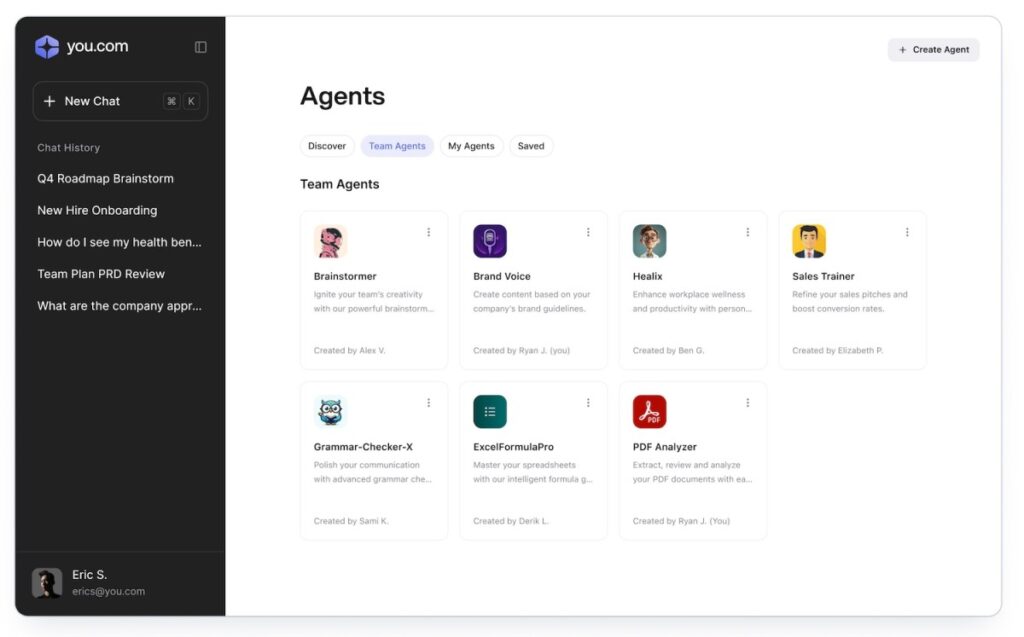Developing an AI search product entails direct competition with Google.
Google has long dominated the search engine market by providing quick, accurate answers to straightforward queries like “how many is a dozen?” or “what time is it in New York?” Its algorithms are optimized for fact-based, objective questions, where a single, definitive answer exists. This is largely due to Google’s ability to crawl and index vast amounts of web content, prioritizing highly ranked pages and official sources to offer immediate, simple responses. For example, asking for unit conversions, common knowledge, or factual data yields nearly instant results because these are questions with clear, universally agreed-upon answers.
However, when queries become more nuanced or subjective — like exploring the influence of Thomas Paine’s *Common Sense* on Enlightenment ideals — Google’s approach begins to falter. These types of questions often require a deeper understanding of context, interpretation of multiple sources, and a synthesis of ideas that transcend factual recall. Google’s search algorithm isn’t designed to provide a detailed analysis or offer a cohesive narrative from various scholarly sources without significant effort from the user to sift through the search results, making it difficult for users to get an in-depth, organized response.
This gap in handling complex inquiries represents a significant opportunity for companies like You.com. Recognizing that modern internet users are increasingly asking complex, multifaceted questions that go beyond simple facts, You.com positions itself as an AI search platform built to address this challenge. By focusing on the ability to navigate, interpret, and compile information from multiple sources, You.com aims to provide more comprehensive, thoughtful responses to difficult queries.

Where Google prioritizes quick access to information, You.com bets on excelling at delivering nuanced, in-depth answers. Instead of just directing users to web pages, it focuses on extracting meaningful insights, synthesizing data, and creating a narrative that answers the query in a clear, organized way. For instance, a question like “what influence did Thomas Paine’s *Common Sense* have on Enlightenment ideals?” would require an AI model to understand historical context, recognize key themes of the Enlightenment, and interpret how Paine’s writings contributed to these ideals over time. This requires not just retrieving information but also interpreting and framing it coherently.
You.com sees this as its competitive edge, and the recent $50 million funding round enables the company to strengthen its AI models for such complex tasks. It’s also a vote of confidence from investors, affirming that You.com is addressing a gap in the AI and search industry that even giants like Google struggle to fill. While companies like Google are often seen as invincible in the search domain, their scale and traditional approaches can limit their ability to adapt to more sophisticated user demands. This is where You.com, a smaller and more agile player, can innovate and carve out a niche, targeting more specialized, high-value queries
Despite often being overshadowed by tech giants, You.com has steadily earned a reputation for innovation in AI. By zeroing in on the more intricate aspects of search — especially the kind that involve productivity tools and knowledge work — it aims to succeed where other companies are investing billions but failing to truly differentiate.

Founder and CEO Richard Socher highlights that trying to beat Google at simple tasks, like answering basic facts or doing quick calculations, wouldn’t be a smart strategy. Google is already excellent at these easy searches, and most people use it for such straightforward queries. Instead, Socher focuses on finding areas where You.com can be *ten times better* than Google, particularly in handling more complex questions that require deeper thinking and analysis, rather than just simple facts.
You.com is focusing on users who do knowledge-based, productive work. Socher describes the key strength of the technology as a “productivity engine,” guiding AI agents on how and when to search the internet efficiently.
The idea of a “productivity engine” might seem unclear, but it simply means that users can ask complex questions in plain language, similar to talking to a human assistant. For example, if someone wanted to know about the side effects of a new drug, they could tell the system, “Summarize the information on the side effects of flimflamazone.”
A typical language model may lack the data to respond accurately to such a specific query, potentially admitting its limitations or offering an inaccurate response. However, You.com addresses these requests more effectively by conducting in-depth research. In such cases, it searches for relevant academic papers and provides clickable citations that direct users to the original source, highlighting the pertinent information for easy reference.

Socher illustrated this with an example involving the estimation of the amount needed to invest in an index fund to cover a child’s future tuition at Stanford. The model systematically explained each step of the process, beginning with determining the average yield of compound-interest funds and estimating tuition costs. It then generated a Python script to calculate the required investment, concluding that approximately $51,000 would be necessary.
While platforms like Claude or ChatGPT can handle similar tasks, You.com distinguishes itself by sourcing fresh, reliable data and ensuring the accuracy and transparency of its information. Socher’s focus is on delivering the correct answer from the start by carefully managing how different models are prompted, setting You.com apart in both precision and reliability.

You.com also offers a “multiplayer” AI feature, allowing multiple users to collaborate on tasks like document summarization or asking questions, with full visibility for everyone involved.
From a business perspective, You.com’s strategy is notably distinctive. Unlike many companies that provide free services or rely on advertising revenue, You.com has successfully attracted a significant number of paying customers. The company’s subscriber base has increased fivefold since the beginning of the year. Socher observes that, whereas other firms are giving away their products to achieve scale, You.com is deliberately growing its user base with a focus on revenue and sustainable expansion.
Socher noted that while he did not specify which clients, some large companies use You.com to manage queries their internal systems can’t handle. Even if You.com is more expensive, its superior results ensure it remains part of these companies’ processes.
Investors have demonstrated strong confidence in You.com’s potential through its recent $50 million Series B funding round. This round was led by Georgian and included significant backing from Day One Ventures, DuckDuckGo, Nvidia, Salesforce Ventures, and SBVA. While this funding amount might appear modest compared to the billion-dollar rounds raised by some larger AI competitors, it highlights a strategic divergence in approach.
Unlike many AI companies that are heavily investing in market creation and scaling with substantial financial losses, You.com has adopted a more sustainable business model. Instead of focusing solely on rapid expansion and high-profile funding, You.com has already begun to generate revenue through substantial enterprise deals. This practical approach is demonstrated by the company’s handling of millions of queries daily, indicating that it is not only building innovative technology but also establishing a profitable and operationally sound business.
This contrasts sharply with the trend among many AI startups that, despite raising enormous sums, often struggle to translate investment into immediate revenue or market traction. By focusing on delivering value to clients and maintaining a steady revenue stream, You.com has positioned itself as a viable and strategically grounded player in the competitive AI landscape.
Although it’s a new concept, the idea that AI can be profitable without huge initial costs might become popular, and You.com could lead the way in achieving this.



